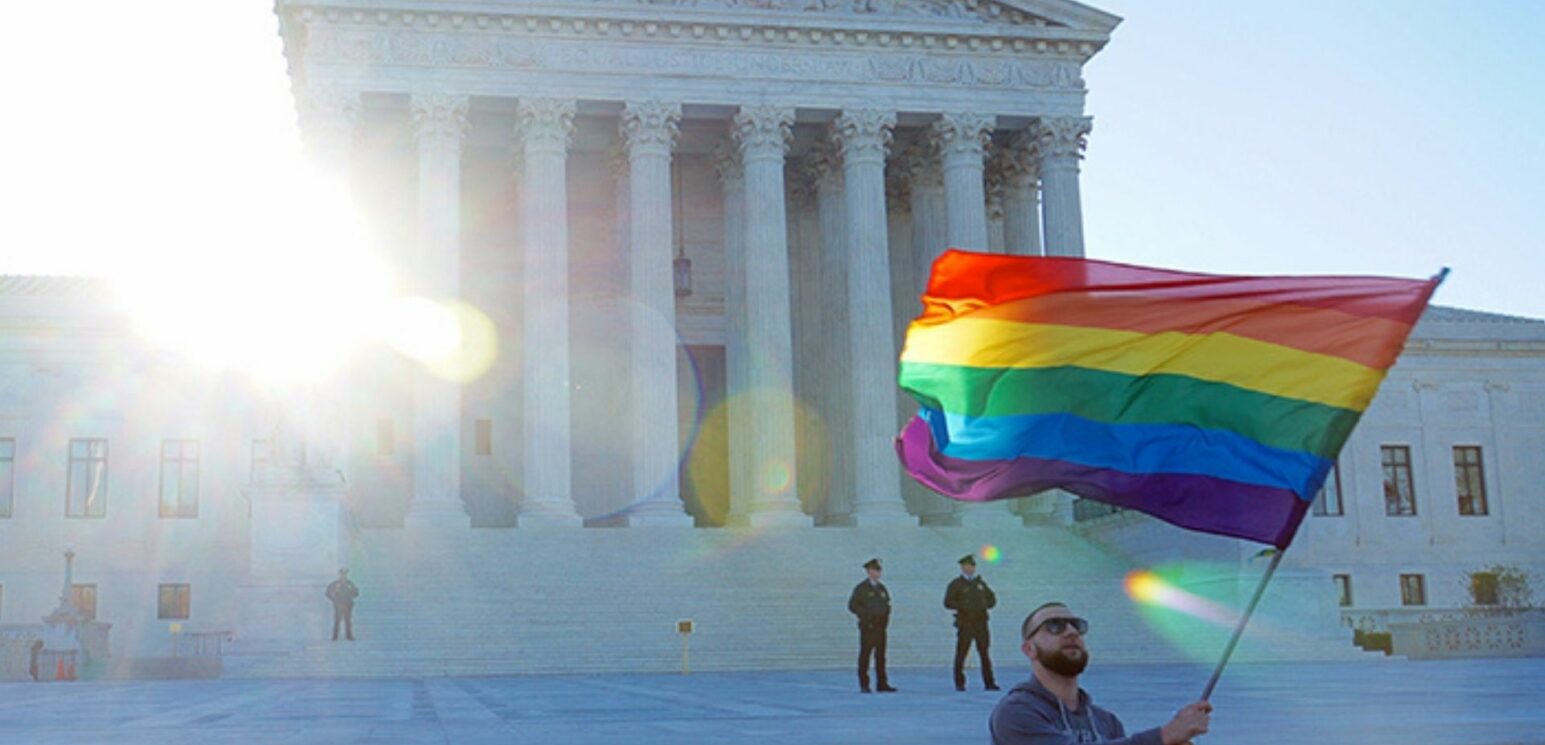The Supreme Court’s clear rule that an employer may not fire an employee because they are gay or transgender
Last year when the country was focused on the ravages of the COVID-19 pandemic, the United States Supreme Court issued a landmark decision solidifying the rights of LGBTQ employees in the workplace. In Bostock v. Clayton County Board of Commissioners, the Supreme Court held Title VII’s ban of discrimination based on “sex” includes discrimination based on an employee’s sexual orientation or transgender status. No longer can an employer fire an employee because the employee is lesbian, gay, bisexual, transgender, or queer.
Title VII
Title VII of the Civil Rights Act of 1964 deals with discrimination in employment. Under Title VII, an employer with 15 or more employees may not make hiring or firing decisions or otherwise discriminate based on an employee’s race, color, religion, sex, or national origin. As a federal law, Title VII governs employers regardless of the state in which the employer is located.
Sex Discrimination
Title VII protects individuals from employment discrimination based on the individual’s sex. Since Title VII was enacted, courts have treated the terms “sex” and “gender” as interchangeable. This means both men and women are protected under Title VII from employment discrimination based on their gender.
Over the years, courts have broadly interpreted Title VII’s ban on sex discrimination. The following categories of discrimination have been recognized by the Supreme Court under the umbrella of sex discrimination that is banned by Title VII.
- Sex-Plus Discrimination
- Sexual Harassment
- Sex Stereotyping
- Same-Sex Sexual Harassment.
Before Bostock – A jumble of opinions
Before the Supreme Court issued its opinion in Bostock, there was no unified interpretation of Title VII with respect to the question of whether an employer could discriminate against an employee based on the employee’s sexual orientation or transgender status. Federal Courts of Appeal in different parts of the country differed in their opinions. The 7th Circuit and the 2nd Circuit each held that sexual orientation discrimination is sex discrimination covered by Title VII. The 6th Circuit held that Title VII protected employees against discrimination based on their transgender status. But the 11th Circuit held that Title VII did not prohibit employers from firing employees because of their sexual orientation.
Not only did the federal courts disagree on whether Title VII protected the sexual orientation and transgender status of employees, federal agencies also differed on the issue. The Equal Employment Opportunity Commission (the federal agency in charge of enforcing Title VII) believed that Title VII banned discrimination based on an employee’s transgender status or sexual orientation. In contrast, the United States Department of Justice claimed Title VII did not protect employees against discrimination based upon their transgender status or sexual orientation.
The split in opinion between courts and agencies on the issue of discrimination based upon an employee’s transgender status or sexual orientation finally ended when the U.S. Supreme Court heard a trio of cases in 2020.
The Supreme Court – The Answer is Clear
In June 2020, the United States Supreme Court issued its decision in three consolidated cases: Bostock v. Clayton County, Georgia; Altitude Express, Inc. v. Zarda, and R.G. & G.R. Harris Funeral Homes Inc. In each of the cases, an employee claimed they were fired simply because of being homosexual or transgender. Gerald Bostock claimed he was fired by Clayton County, Georgia for conduct “unbecoming” a county employee after he joined a gay softball league. Donald Zarda claimed he was fired by Altitude Express after he mentioned he was gay. And Aimee Stephens claimed she was fired by R.G. & G.R. Harris Funeral Homes after she told them she was transitioning to female and planned to live and work at the funeral home as a woman.
After hearing arguments, the majority of the Supreme Court issued its opinion:
An employer who fires an individual merely for being gay or transgender violates Title VII.
Justice Neil Gorsuch wrote the majority decision for the Court. In his opinion, Justice Gorsuch wrote “[t]he answer is clear. An employer who fires an individual for being homosexual or transgender fires that person for traits or actions it would not have questioned in members of a different sex. Sex plays a necessary and undisguisable role in the decision, exactly what Title VII forbids.”
The Court’s holding is based upon the simple application of the terms used in Title VII interpreted in accordance with their ordinary meaning in 1964, the date that Title VII was enacted. Title VII prohibits discrimination because of sex. Using the ordinary meanings of sex, because of, and discrimination, the Court adopted the following rule: “An employer violates Title VII when it intentionally fires an individual based in part on sex.”
The Court reasoned that it is “impossible to discriminate against a person for being homosexual or transgender without discriminating against that individual based on sex.” If the rule established by the Court is applied to the situation of an employer discriminating based on an employee’s transgender status or sexual orientation, it must follow that that the employer is discriminating based in part on the employee’s sex and violates Title VII.
National protection
Before Bostock, 22 states banned discrimination in the workplace based on an employee’s sexual orientation or gender identity. But, no unified position existed at the federal level due to the tug-of-war between the federal circuit courts of appeal, the EEOC and the Justice Department. After Bostock, virtually every employer with 15 or more employees is banned from discriminating against an employee’s sexual orientation or transgender status. A uniform federal rule now exists, which removes workplace barriers for the LGBTQ community.
Dr. Robin Clark
Clinical Assistant Professor of Business


